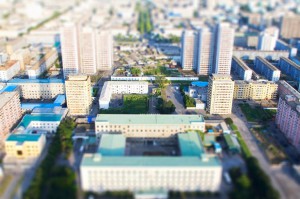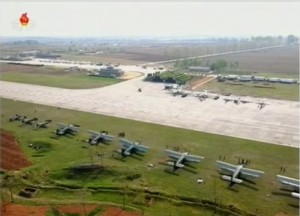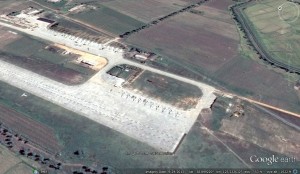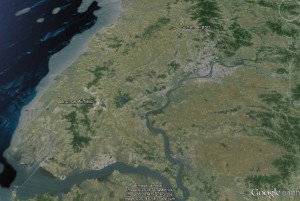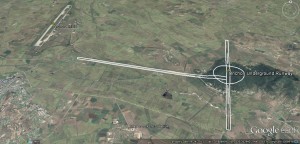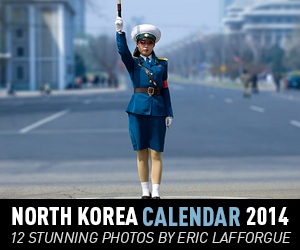UPDATE 91 (2014-1-14): ROK spends 1/3 of DPRK budget for FY 2913. According to Yonhap:
South Korea spent less than one-third of its fund intended to boost exchange and cooperation with North Korea last year, the unification ministry said Tuesday.
South Korea spent 296.4 billion won (US$280 million) last year, or 27 percent of the 1.09 trillion won earmarked, for the inter-Korean cooperation fund, according to the ministry, which handles inter-Korean affairs.
The figure represents the highest level in six years as the government paid insurance money to small South Korean companies that operate plants in the North’s border city of Kaesong.
The South Korean companies received insurance money worth 177.7 billion won due to the months-long shutdown of the inter-Korean joint factory park in Kaesong last year.
In 2008, the ministry spent 18.1 percent of the inter-Korean cooperation fund. The ratio dropped to 8.6 percent and 6.5 percent in 2009 and 2012, respectively, as inter-Korean relations soured.
The factory park resumed operations in September, more than five months after the North unilaterally closed it in anger over joint annual military exercises between South Korea and the United States. In August, Pyongyang pledged not to shut the park down again “under any circumstances.”
More than 44,600 North Koreans work at 120 South Korean firms operating in the park to produce clothes, shoes, watches and other labor-intensive goods. The project serves as a major legitimate revenue source for the impoverished communist country.
UPDATE 90 (2013-12-30): The ink has barely dried before the DPRK has seemed to breech it. This time the DPRK has demanded that the firms in the KIC pay back taxes. According to Yonhap:
North Korea has demanded that South Korean firms operating in a jointly run factory park in the communist nation pay taxes to North Korea, an official said Monday, in an apparent breach of a September deal.
The North said in a notice last week that the firms in the factory park in the North’s western border city of Kaesong should pay taxes incurred between Jan. 1 and April 8, according to the official handling the issue at the unification ministry.
The ministry, which handles inter-Korean affairs, said the North’s demand did not make any sense, and it was in talks with North Korea over the issue.
The move comes three months after North Korea agreed not to collect taxes from the South Korean firms for 2013 to make up for their losses following its unilateral closure of the factory park on April 9.
In September, the sides resumed the operation of the factory park, a month after the North pledged not to shut it down again “under any circumstances.”
Although the North Korean government took a loss on “tax revenue” it still made plenty of money from the confiscated wages of its workers. According to the article:
The North earned US$80 million in wages for its workers last year.
UPDATE 89 (2013-11-24): Inter-Korean trade has started to recover.
UPDATE 88 (2013-11-13): The Korea Times reports that the Kaesong firms are getting loan payments deferred and a new round of talks is underway. According to the article:
The government said Wednesday it will allow companies with factories at the inter-Korean Gaeseong Industrial Complex (GIC) to delay payment of loans due within the next six months.
“The due date for loans taken out from the state-run inter-Korean cooperation fund will automatically be pushed back six months,” said Park Soo-jin, vice-spokeswoman of the Ministry of Unification that handles inter-Korean affairs, Wednesday, during a regular briefing. “The amount equals to 46 percent of all loans provided by the fund.”
According to the ministry, 28 out of the total 123 companies, which have taken out loans totaling 9.7 billion won ($ 9 million), will benefit from this measure.
Up to date, companies that have factories in North Korea’s border city of Gaeseong altogether borrowed about 21.3 billion won ($ 19.9 million) from the cooperation fund.
The move by the government is aimed at easing the pressure on GIC companies strapped for cash in the face of declined production as a consequence of the five-month hiatus of operations because of heightened tension on the Korean Peninsula earlier this year.
In the same article, the Korea times reports on the latest round of talks between the DPRK and ROK over the management of the KIC:
Meanwhile, on the same day, working-level officials from the South and North met to discuss ways of better protecting investment at the GIC and promote its internationalization.
The meeting of two sub-panels of the Gaeseong joint management committee were held in the North’s border city, the ministry said.
“The two sub-panel meetings, the first since Sept. 26, are designed to bolster the overall global competitiveness of the GIC,” a ministry official said.
There are altogether two sub-panels under the larger GIC joint management committee that has taken charge of running the complex since operations resumed in September.
During the investment protection panel meeting, the two sides reportedly discussed the establishment of an official dispute settlement regime coupled with how to attract more foreign investors into the GIC.
Previously, the two Koreas agreed to hold an IR session on Oct. 31 but it was canceled when little headway was made in a separate sub-panel meeting to change rules dealing with travel, communication and customs at the joint complex in North Korea.
The ministry also said another meeting to discuss the rights and safety of South Koreans working in Gaeseong will be held today.
But the date for the travel and communication meeting has yet to be fixed because of its sensitivity.
Read previous posts below:
(more…)
